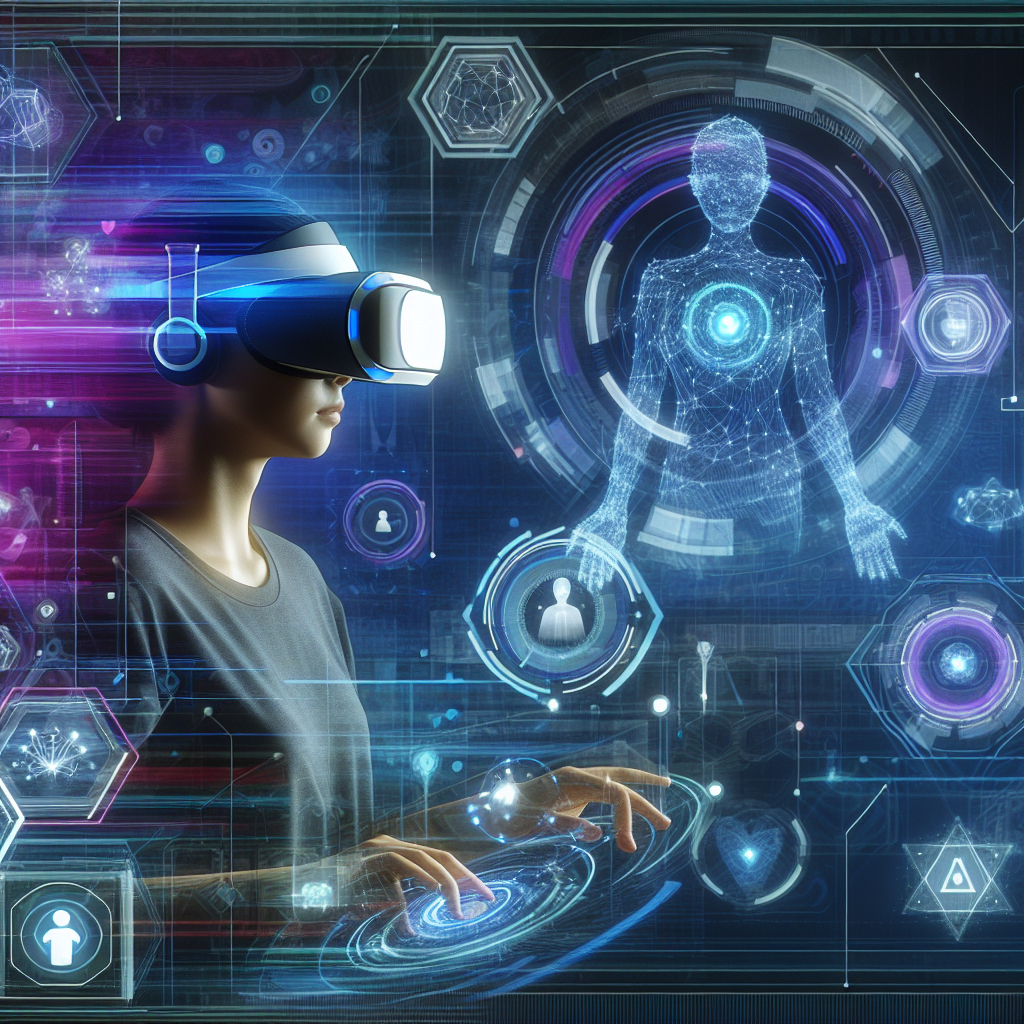Virtual Reality (VR) and Artificial Intelligence (AI) have been two of the most revolutionary technologies of the past decade. When combined, they create an incredibly immersive and interactive entertainment experience that is truly unparalleled. From gaming to movies to live events, VR and AI are changing the way we consume and interact with entertainment.
Virtual Reality technology allows users to be transported to a completely different world, whether it be a fantasy realm, a historical setting, or a futuristic landscape. By wearing a VR headset, users can experience a 360-degree view of their surroundings and interact with the virtual environment in a way that feels incredibly lifelike. This level of immersion can create a truly unforgettable experience for the user, whether they are exploring a virtual world, playing a game, or watching a movie.
Artificial Intelligence, on the other hand, can enhance the VR experience by providing intelligent and responsive characters and environments. AI can be used to create realistic and dynamic NPCs (non-player characters) that react to the user’s actions and adapt to their behavior. This can make the virtual world feel more alive and engaging, as users interact with characters that feel like real people.
One of the most exciting applications of VR and AI is in gaming. With the rise of VR gaming platforms like the Oculus Rift, HTC Vive, and PlayStation VR, players can now immerse themselves in virtual worlds and interact with them in ways that were previously unimaginable. AI can be used to create intelligent enemies and allies that challenge the player and respond to their actions in real-time, creating a more dynamic and engaging gaming experience.
In addition to gaming, VR and AI are also being used to revolutionize the way we watch movies and TV shows. With VR headsets like the Oculus Go and Samsung Gear VR, users can watch movies in a virtual theater or even be placed directly into the action of the film. AI can enhance this experience by providing personalized recommendations based on the user’s viewing habits and preferences, creating a more tailored and enjoyable viewing experience.
Live events are another area where VR and AI are making a big impact. With VR technology, users can attend live concerts, sporting events, and other performances from the comfort of their own home. AI can enhance this experience by providing virtual companions and interactive elements that make the user feel like they are truly part of the event.
Overall, the combination of VR and AI creates a truly immersive and interactive entertainment experience that is unlike anything we have experienced before. Whether you are a gamer, a movie buff, or a fan of live events, VR and AI have the potential to revolutionize the way we consume and interact with entertainment.
FAQs:
Q: How does VR technology work?
A: VR technology works by using specialized headsets that track the user’s head movements and position in space. This allows the user to feel like they are actually in a virtual environment, as the headset adjusts the display to match their movements.
Q: What is Artificial Intelligence?
A: Artificial Intelligence is a branch of computer science that focuses on creating intelligent machines that can perform tasks that typically require human intelligence, such as learning, reasoning, and problem-solving.
Q: How does AI enhance the VR experience?
A: AI can enhance the VR experience by creating intelligent and responsive characters and environments that make the virtual world feel more alive and engaging. AI can create dynamic NPCs that react to the user’s actions and adapt to their behavior, creating a more immersive and interactive experience.
Q: What are some popular VR gaming platforms?
A: Some popular VR gaming platforms include the Oculus Rift, HTC Vive, and PlayStation VR. These platforms offer a wide range of games and experiences that take full advantage of VR technology.
Q: How is VR and AI being used in movies and TV shows?
A: VR and AI are being used in movies and TV shows to create more immersive and personalized viewing experiences. Users can watch movies in a virtual theater or be placed directly into the action of the film, while AI provides personalized recommendations based on the user’s viewing habits and preferences.
Q: Can VR and AI be used for educational purposes?
A: Yes, VR and AI are being used in educational settings to create immersive and interactive learning experiences. Students can explore virtual environments and interact with intelligent NPCs that provide personalized feedback and guidance.
In conclusion, Virtual Reality and Artificial Intelligence are changing the entertainment industry in ways that were previously unimaginable. By combining these two technologies, we can create truly immersive and interactive experiences that will revolutionize the way we consume and interact with entertainment. Whether you are a gamer, a movie buff, or a fan of live events, VR and AI have the potential to create the ultimate entertainment experience.

